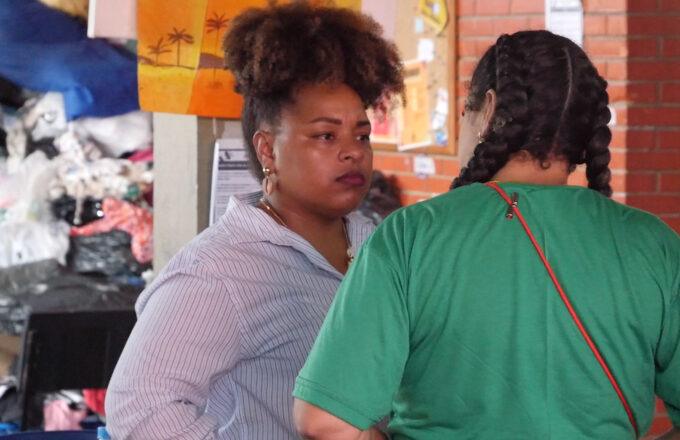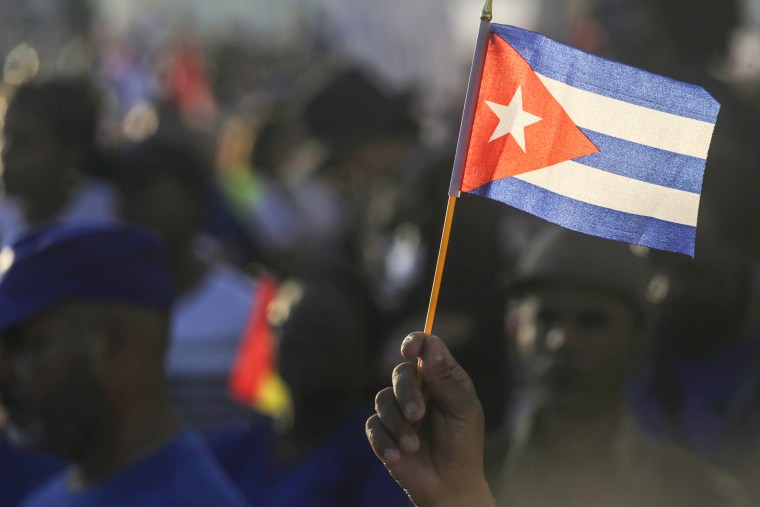Porto Alegre Floods and the Failure of the
Minimal State

Bruna Rodrigues, 36, from the Communist Party of Brazil, the first black woman ever elected to Rio Grande do Sul’s state legislature.
On April 31, 300 mm of rain fell in the mountains of Northern Rio Grande do Sul, causing dam breaks, landslides and submerging entire towns, leaving over 160 people dead as it headed south towards the Guaíba drainage basin, where all of the streams and rivers of the northern third of the state converge to enter into a river that runs directly past downtown Porto Alegre. Devastated by a huge flood in 1941, the City of Porto Alegre used Dutch technology to construct a huge dike, floodgate and pumping station system in the 1960s to prevent a similar tragedy from every happening again. As the water level in the Guaíba River surpassed the 3-meter mark during the first days of May, the public found out that some of the flood gates were missing rubber seals and bolts, and many had rusted into their tracks. Furthermore, pumping station 17, located next to Porto Alegre’s historic district, which hadn’t worked during a recent flood in November, 2023, was still broken. By the time the water hit it’s high point of 5.33 meters on May 5th, half of the city’s pumping stations were inoperable, 85% of the city of 1.4 million no longer had running water, and over half the city had lost its electrical service. Two weeks later, I traveled by bus from Florianopolis to Osario, Rio Grande do Sul. There, I caught a local bus to the Agronomia municipal bus terminal, which had been temporarily set up for inter-city transport as both the city’s main bus terminal and airport were still underwater, along with large swathes of the city and the surrounding suburbs like Canoas and Sao Leopoldo, part of the metropolitan area of 3.3 million. On the day I arrived, 580,000 people had been displaced, with 71,000 living in shelters and the remainder in the houses of friends and families.
On May 22, I interviewed State Congresswoman Bruna Rodrigues. Daughter of a public street sweeper and the first member of her family to study at university, she was elected City Councilor in 2020 and State Congresswoman in 2023 . Before that, she served as President of Porto Alegre’s Residents Association Union and the Union of Socialist Youth. A member of the Communist Party of Brazil, Rodrigues is a former cabinet member of 2018 Vice Presidential Candidate Manuela D’Avila, and co-founder of the state assembly’s first congressional black caucus.
I caught up with her in Porto Alegre’s Santa Teresa neighborhood at Preta Velha, a formerly abandoned public school building which she helped convert into an Afro-Brazilian movement community center. Preta Velha is now running a solidarity kitchen and serving as a voluntary distribution center for donated clothes and sanitary goods. Due to the noise of dozens of volunteers packing hot food into Styrofoam containers and folding and packing donated clothing, her press secretary suggested we go upstairs, where I filmed this interview in an empty classroom. The following is a translated transcript that has been edited for readability.
Brian Mier: Could you explain some of the failures of the Porto Alegre city government over the last few years that have exacerbated this catastrophe?
Bruna Rodrigues: There have been a lot of them. First of all, Porto Alegre has seen its public services severely degraded over the past 20 years – destroyed by a governing coalition that believes that the State should be minimal and subordinate to the market. One example is the Civil Defense department, which is responsible for rescue operations during disasters. Today Porto Alegre has its lowest number of Civil Defense workers in its history. In counterpart, there has been a huge level of privatization and outsourcing of city services. When you look at investment, the disgrace is even deeper. There is no work being done on prevention and environmental education – we can start there. Porto Alegre recycles less than 6% of its solid waste. Furthermore, the Water and Sanitation Department, DMAE, is being prepared for privatization and has laid off half its workers over the last decade.
The Porto Alegre Mayor’s Department changes actors but the policies remain the same. Mayor Sebastião Melo was José Fortunati’s Vice Mayor and has been part of the government for 20 years. So a very small part of the actors change but the management remains the same. We can see what they have done to DMAE, and how they closed the Department of Rainwater Drainage (DEP) – a service that was essential for a kind of urban development in which basic sanitation was treated as an important policy. So when we talk about structural axes, environmental policy practically doesn’t exist in Porto Alegre aside from tree trimming and removal, which isn’t done very well. There are no prevention policies, no policy of analysis of the advance of climate disasters meaning that there is no investement in a phenomonon that is here to stay. In Porto Alegre we have neighborhoods built on river islands that historically suffer from floods. No solution has ever been made for them. To the contrary, this coalition has pushed the ideology of the minimal State for years and this has led to a strategy of blaming of the victims. This is what the mayor’s office has been doing. It’s been shirking its responsibilities and putting all of the blame for this catastrophe on its citizens. We are fighting hard against this.
Mier: How does Mayor Melo work to put the blame on his citizens?
Rodrigues: For example he says, “people live in risk areas- this is the problem.” When he says that this is the problem and we look at the people who are living there, they are people who have no access to social housing policies. When we look at this city we see that it doesn’t have a clearly defined housing policy. It doesn’t have a strategy – it hasn’t had a municipal housing plan for many years. Porto Alegre hasn’t produced any social housing for a long time. It doesn’t have a municipal development plan. The city government’s own vacant buildings and lots, which could be converted to social housing, are given to real estate speculators for market initiatives instead of the population that needs it the most.
Mier: What do you think is the most important thing that the Mayor’s Office should do now for the flood victims?
Rodrigues:For starters, they should listen to them, right? So far the people are being thrown into different predetermined places. Their lives are now being defined by public services that barely exist. Here in the Preta Velha collective, which has opened its doors for solidarity, people who were rescued are arriving who have been given bad information, who have been dumped in shelters but don’t have any information, and who are receiving reduced quantities of food. They are leaving these places and going to the houses of relatives but they don’t have any perspective of returning to any form of dignified housing. So when we talk about these public services which aren’t being delivered we’re talking about these people who are suffering the consequences. They were taken from the water and thrown somewhere out of the water. So when we talk about public policies, of a government that has the capacity to rescue people, put them somewhere dignified and offer them some kind of perspective for the future, unfortunately, this is something that Mayor Melo hasn’t been able to do.
Mier: Have you witnessed any attempts by people on the far right to sabotage or deligitimize the relief efforts made by the federal government?
Rodrigues: Disinformation is on the loose everywhere in every form imaginable. The Federal Government brought in 3500 rescue workers during the first week of the flood, but they spread lies that the Federal Government hadn’t arrived yet. President Lula took a series of measures so that Rio Grande do Sul could organize rescue efforts that including deploying the army and the national security force. He also allocated funding and, unfortunately this is all being distorted on social media to generate a smokescreen to take the blame away from the responsible parties and re-frame all the anger and hatred. Unfortunately, Brazil has a tradition of political agents fomenting and organizing hatred in a way that people have a hard time understanding what is real and what isn’t. The fake news is doing this, unfortunately. So when we talk about sabotage, we are talking about everything that wasn’t done so that the people could have been rescued with dignity. The governor has been working as an interlocutor of the weather and not a manager who is living in a disaster zone, a total tragedy, without the capacity to manage or organize civil society to show more solidarity. So we have a lot of challenges but we are fighting so that we can return to having a strong State that has the capacity to care for its citizens.








